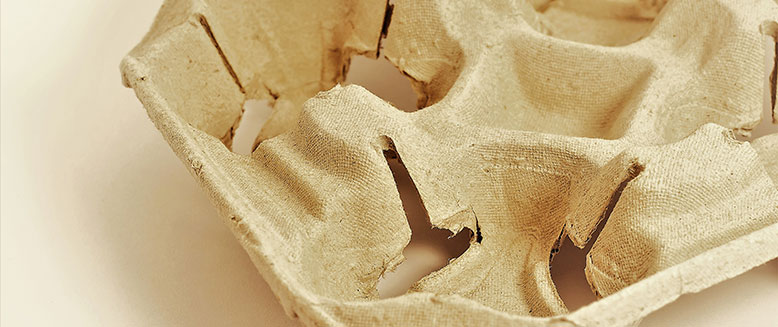Watching the young man in early recovery is fascinating. Like his peers in the program who have travelled from near and far to challenge a chance at recovery from sustained substance abuse, he initially walks in trepidatious, slightly hopeful, and lost — until finding the coffee station. If it’s 7:45 a.m. at the treatment center, flocks of men will be gathering around the colossal-sized coffee maker, over-filling carafes, pumping their cups full until you can hear the gurgle of the last drops sucked up in the carafe splattering into their oversized foam cup.
Article author Heather Black-Coyne, the Northbound Men’s Core Program Manager, was among the clinical staff leaders and members who collaborated on a recent memorandum to remove coffee stations at the clinical center previously reserved for Northbound clients.
No shame exists for any human when it comes to coffee. Taking the time needed to overfill our cup, carefully dumping buckets of sugar and creamer to taste, whipping to perfection. But for the young man in recovery, there’s also a tightrope walk back to his therapy group to navigate, requiring carefully-managed spills and dealing with the inevitable retort “no coffee in group” upon arrival. Not that this is a problem for the young man in recovery. He’ll easily recuperate from the setback, turn around, slowly walk out of sight to sip his coffee to his satisfaction, rest his cup on a nearby table and return to it at a later time.
This theme solidified over time in our men’s program. The coffee station and the young men gravitating towards the warm beverage, the picture of comfort. Also: excuses, tardiness and litter. Eventually one client poked holes in the bottom of the cups and sprayed coffee creamer around the building. Alas the coffee maker was removed for an extended period. What came to be is nothing short of a Christmas miracle.
Soon every client was in group at the start time, and back in group promptly following a break. Clients left group less often for the restroom (and coffee), and they pressed boundaries less with group rules. Paradoxically, removing the coffee fostered a sense of community and responsibility for the men. They advocated for a larger coffee maker at their property to allow for them to make coffee for each other in the morning prior to leaving for programming; they woke up earlier to prepare adequately for their day.
Working in the addiction arena, my colleagues and I know coffee is considered a stimulant. We understand the actions against neurotransmitters, and the subsequent withdrawal to come. We understand, intimately, the power of habit, and the power of feelings moving us toward distraction. Yet we decide to allow the lesser of the evils in a therapeutic setting. It was only after careful consideration that the clinical staff made our decision to permanently remove those coffee stations for clients. We house close to 100 men and women whom “depend” on coffee each morning. The fear of a riot was real.
Instead we continue to see a positive increase in participation, timeliness and preparedness.
Remaining strong about this decision as a program manager on the clinical team was a challenge initially. Clients did struggle for the first week following the announcement. Women seemed the most offended. Over the next week Uber drivers visited the property to deliver coffee, and small coffee pots made their way from the clients’ homes to the clinical center. We witnessed clients making unofficial drip coffee, placing paper towels filled with grounds over their cups, filling them with hot water, patiently awaiting the completed product. We played to their resourcefulness and applauded their zeal.
Meanwhile, the clients gave way to the new system. They’ve been waking up earlier to prepare coffee and pack it for programming with their lunch. They have “right-sized” their coffee intake. Northbound clients are now less dependent on a coffee arrangement that seemed to fuel one thing: distraction.
Author
-

President, CEO & Founder at Northbound Treatment Network
Paul Alexander is the CEO, President & Founder of Northbound Treatment Network in Newport Beach, California. He believes wholeheartedly in transformational leadership, organizational health and effective, fully integrated substance use disorder and mental health treatment. With over 27 years of experience in behavioral healthcare, Paul has extensive knowledge of “in vivo” treatment modalities, clinical development, operations, strategy, marketing and financial planning. He has been widely recognized for his development of collegiate-based residential treatment programs for students in recovery and authored a research study at The University of California confirming this modality’s effectiveness.
Paul’s comprehensive professional experience, willingness to innovate, and emphasis on organizational health are vital factors in Northbound’s continued success. Paul received his Certified Addiction Treatment Specialist training at Saddleback College in Mission Viejo, CA, and was awarded Outstanding Alumni Service Award in 2002. Paul holds a Bachelor of Arts degree in Criminology, Law and Society, Summa Cum Laude, from University of California, Irvine, and a Juris Doctorate degree from Loyola Law School of Los Angeles. Paul currently serves on The National Association of Addiction Treatment Providers (NAATP) board. In addition, he serves on The Family Recovery Foundation board and The CarePossible board in Orange County; both organizations are committed to raising funds for family recovery and treatment for former military personnel. Paul is in recovery himself and lives in Orange County with his wife Silvana and his two young sons, Noah and Dean.










